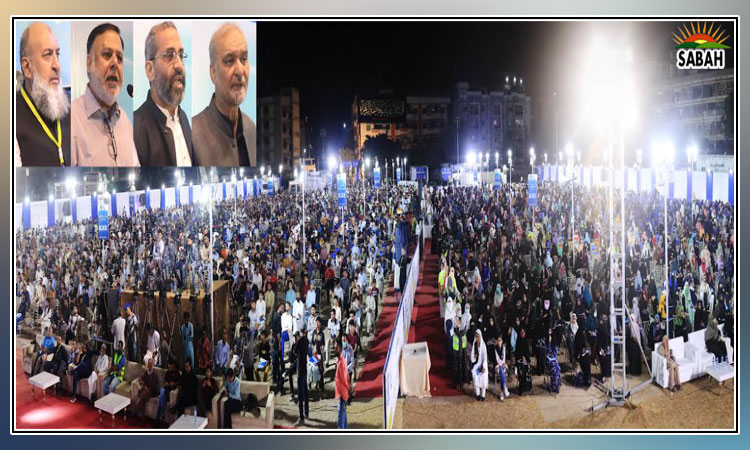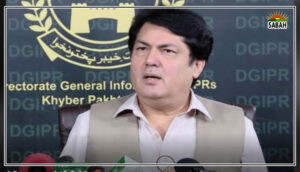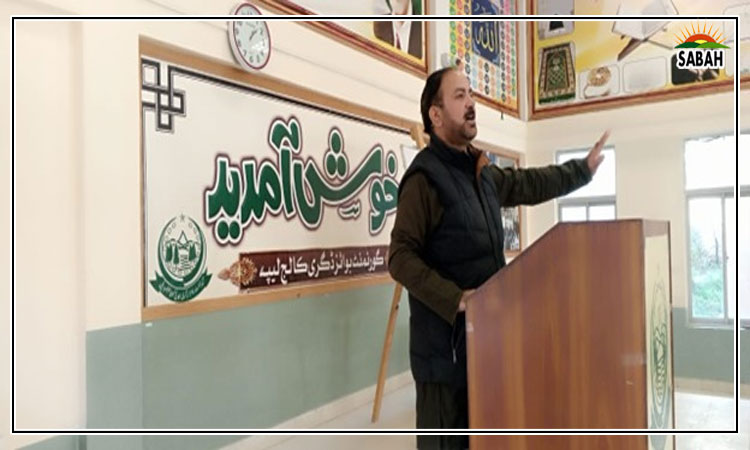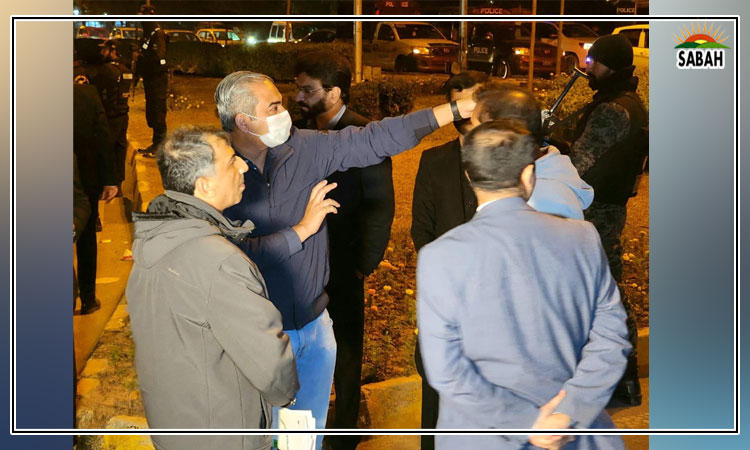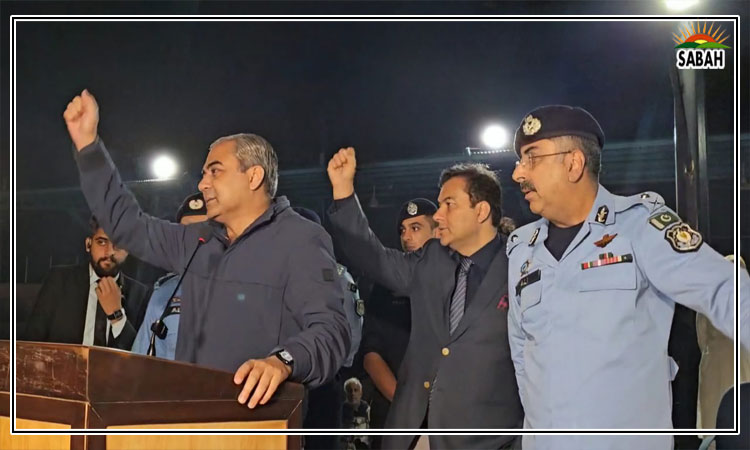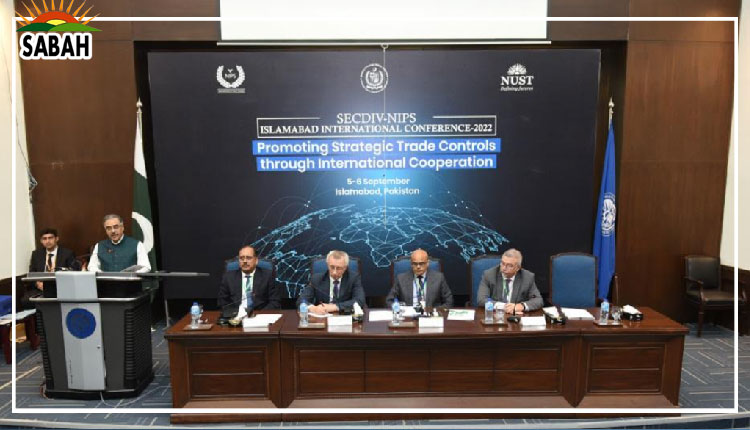Pakistan shares global concern regarding threat posed to int’l peace & security by proliferation of WMDs: Sohail Mahmood
ISLAMABAD, Sep 06 (SABAH): Foreign Secretary Sohail Mahmood has said that Pakistan shares the global concern regarding the threat posed to international peace and security by proliferation of Weapons of Mass Destruction (WMDs). It supports a strong rule-based, equitable and non-discriminatory international arms control, non-proliferation and disarmament regime, premised on the principle of equal security for all states. Such a regime is imperative for the maintenance of international peace and stability, he said.

This was stated by Sohail Mahmood in his closing remarked while addressing the Conference on “Promoting Strategic Trade Controls through International Cooperation” on Tuesday.

Sohail Mahmood thanked the NUST Institute for Policy Studies (NIPS), for its collaboration with the Foreign Office in holding this event.

“On behalf of the Ministry of Foreign Affairs, I also thank the panelists and experts for their valuable contributions to the deliberations on various aspects related to the subject matter of this Conference” he said.

He said that the conference was organized with the aim to promote interaction of national and international policy-makers, enforcement agencies, public sector organizations, private industry, and the academia. He said that the idea was to benefit from their perspectives on a variety of topics, including Strategic Trade Management (STM), implementation of United Nations Security Council Resolutions on WMD-proliferation and its financing; and recent developments in the multilateral export control regimes.

“I am confident that the conference has met its objectives. We hope it and would lead to better understanding of the challenges related to trade in dual-use technologies and that such understanding would pave the way for streamlining of the control regimes for sensitive technologies to ensure unhindered trade for legitimate purposes while addressing the risk of proliferation” he said.

Sohail Mahmood said that Pakistan shares the global concern regarding the threat posed to international peace and security by proliferation of Weapons of Mass Destruction (WMDs). It supports a strong rule-based, equitable and non-discriminatory international arms control, non-proliferation and disarmament regime, premised on the principle of equal security for all states. Such a regime is imperative for the maintenance of international peace and stability.
“Accordingly, we have put in place extensive legislative, regulatory and administrative frameworks for exercising effective controls over transfers of sensitive goods and technologies to prevent their diversion to non-peaceful uses. I understand that the participants have been briefed about the extensive export control mechanisms put in place by Pakistan, consistent with the standards being followed by the multilateral export control regimes including the NSG, MTCR and Australia Group” Sohail Mahmood said.
He said that while adhering to international export control standards and best practices, Pakistan strongly maintains that efforts for regulating international trade in dual-use technologies should not hamper free and equitable access to such technologies for legitimate socio-economic applications.
“An inclusive, non-discriminatory and principle-based approach will serve the multilateral export control regimes as platforms of greater cooperation for trade development and regional prosperity, without compromising their non-proliferation objectives with greater legitimacy, credibility and effectiveness” he said.
He said that on the other hand, policies of discrimination and exceptionalism are detrimental to the non-proliferation objectives and credibility of the export control regimes. The 2008 country-specific exemption by the NSG for transfers of nuclear technology not only harmed the cause of nuclear non-proliferation but also undermined strategic stability in South Asia.
Sohail Mahmood said that multilateral export control regimes must facilitate access to modern technologies for the economic progress of the developing countries. Moreover, there is a need to make the membership of the regimes more representative, he said.
“Such a transformation is warranted by the advent of new technologies like Information and Communication Technologies (ICTs), 3D printing, A.I., biotechnologies, quantum computing, and lethal autonomous weapon systems” he said.
He said that these technologies are all pervasive and no longer the preserve of a few supplier states. A truly effective regime will necessitate the participation of all the interested stakeholders, including emerging economies which are making great strides in these new and emerging technologies. Furthermore, given the extensive applications of these technologies in mitigating the global challenges of climate change, public health, water, energy and food security, access to these technologies should not be denied based on political considerations, he said.
Sohail Mahmood said that the United Nations recognizes science and technology as one of the key enablers for the achievement of Sustainable Development Goals (SDGs). The COVID-19 pandemic reinforced the need for international scientific and technological cooperation in an increasingly interconnected global community, he said.
Foreign Secretary Sohail Mahmood said that given Pakistan’s thriving S&T landscape, with extensive expertise, experience and technological capabilities in ICTs, biotechnologies and nuclear applications, it clearly qualifies for participation in the existing multilateral export control regimes.
He said that Pakistan’s participation in these regimes will further the non-proliferation objectives of these regimes. Pakistan will welcome non-discriminatory criteria for membership of these control regimes, provided these criteria are applied on the basis of fairness and impartiality, he said.
“Let me conclude by expressing the hope that the interactions during this conference and the contacts that you have established amongst yourselves will provide the basis for enduring cooperation and partnership in the pursuit of our shared objectives” Sohail Mahmood said.


